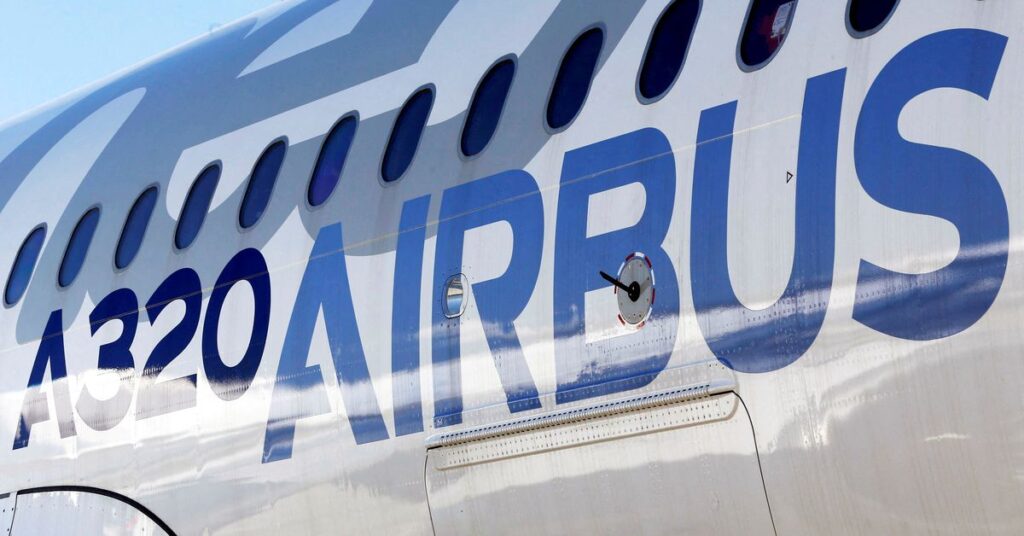PARIS, April 7 (Reuters) – Airbus (AIR.PA) deliveries fell by 11% on an industrial basis to 127 jets in the first quarter, underscoring the pressure on global supply chains and paving the way for a 12-week sprint to steady the trajectory by mid-year, industry sources said.
Deliveries were down 11% from 142 physical deliveries in the same period last year, or down 9% compared with an adjusted year-ago total of 140. Airbus last year clawed back two deliveries to reflect Western sanctions on Russia.
Airbus delivered 11 wide-body jets including 5 A350s in the first quarter of 2023, 10 small A220 jets and 106 of its best-selling A320neo-family aircraft, the sources said.
Airbus declined comment ahead of a release due on April 11, when rival Boeing (BA.N) is also scheduled to report deliveries.
After starting the year with a one-third drop in deliveries in January, Airbus reduced the cumulative year-on-year deficit to 11% in March from 16% the month before.
But hopes of achieving deliveries in the high 130s in the first quarter were hit by continuing industrial and supply chain problems that have most recently spread to premium wide-body cabins, the sources said, speaking on condition of anonymity.
The quarterly drop was led by the long-haul A350, down to 5 aircraft from an unadjusted total of 16 a year earlier.
MID-YEAR DEADLINE
Deliveries set the tone for profits and cashflow since airlines and lessors pay most of the price on delivery.
Airbus Chief Executive Guillaume Faury moved to bolster medium-term output targets and deepen access to a key market by announcing a new assembly line in China on Thursday.
The company has also strengthened a “watchtower” system aimed at monitoring lower tiers of the supply chain.
But the shortfall in the first quarter keeps Airbus under pressure to speed deliveries in the current quarter, or at least regain enough visibility to either confirm or review an annual goal of 720 deliveries by mid-year.
The company was forced to lower its delivery target last year before eventually abandoning it as supply woes swamped its forecasts.
Sources say Faury, who has called 2023 make-or-break after last year’s downgrades, is determined to avoid flying blind into the second half, meaning the half-year performance may be decisive for delivery goals and operational planning.
Even so, Airbus and Boeing are both ramping up output to meet rising global demand. Faury said in China on Thursday that the new line there would leave valuable new “surge” capacity.
Reporting by Tim Hepher; editing by Jason Neely, Robert Birsel, Kirsten Donovan
: .


